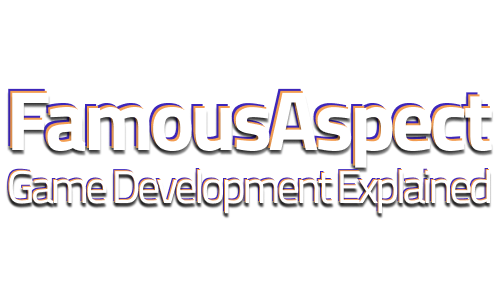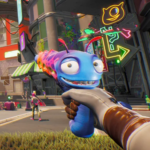Was all the crunch worth it? This is the question I’ve been asking myself after the recent backlash to the pro-crunch Tweet and resulting walk back from Striking Distance boss Glen Schofield.
I’m not talking about on a corporate level, but on a personal one. I recently had a conversation with Mighty Bear CEO Simon Davis about our similar career trajectories and experiences. At one point he said “before all the crunch on that game, I had a full head of hair.” To which I chuckled, pointed out my thinning hairline and said “this was a lot fuller before shipping Dragon Age Legends.” We then had a more serious discussion on the topic of crunch and its effect on our lives, the culture at the companies we’ve worked at and the lives of our colleagues.
Growing up, my father left for work before we woke, arrived at home right at dinnertime, and spent the weekend at the office. I grew up in a privileged background, no doubt, and my father’s dedication to work gave me all sorts of advantages that allowed me to get to where I am today. It also instilled the idea, deep down within my psyche, that (in a heterosexual family unit) the father works, the father provides. This is his function in the family.
As a teen, I obsessively read gaming magazines and websites. Not just PC Gamer, EGM, Gamespot and other enthusiast fare, but also Game Developer magazine and the horribly named Gamasutra. I was that weird breed of gaming dork who fantasized of one day speaking at GDC and making a game that was on the front page of IGN. And in both the enthusiast and industry press I cherished, there was a valorization of crunch culture. Making games was a calling, not a profession. It was an all-encompassing lifestyle. It was an impossible dream career that was god-tier difficult to break into, let alone stay employed in. And it was the future for me.
Between these two lessons, I entered the workforce with a narrative that crunch culture was good and necessary. I was fully prepared to dedicate myself to the craft of making videogames. So in college, when my privileged background landed me an internship at Pandemic Studios, I was all in. I switched majors so that I could take classes two days a week and work at Pandemic three. I skipped spring break to work. I worked all summer. Not only did I work, but in the crunch to ship Star Wars: Battlefront, I was working a bizarre schedule that often had me at the studio from 6pm till noon the next day.
I put myself under an immense level of stress. Needlessly, I might add. These were choices I made and mental dark patterns I fell into. I could have quit. Or refused to work such crazy hours. Instead, I internalized all the stress of shipping a product that honestly, I had very little to do with the success or failure of.
I was a production grunt. I ordered and picked up dinner. I burned builds onto discs so they were ready for the team in the morning. I regressed bugs. I made sure to hand a nightly build to a courier at midnight each night so that he could fly it up to LucasArts. And I dozed on and off from 2am till 7am, waking regularly to check and make sure that the backup upload of that build completed by the start of the workday. Nothing essential to the project’s success or failure. Nothing someone else couldn’t have done.
Through a combination of my choices and a lack of coping skills for this level of self-inflected stress, I injured myself. I herniated a disc in my back. I developed repetitive stress injury in both arms. Doctors put me on a high level of opiate pain killers since they had no way to cure me of the pain, and this was an acceptable way to manage pain at that time. These injuries and their cures took me many many years to fully recover from.
And the kicker of it all was partway through my senior year of college, between the release of Battlefront 1 and the ramp up for Battlefront 2, I was let go. When I graduated, Pandemic HR would not return my emails. I had made the choice to give it all to Battlefront, and in return I was left wondering how to claw my way back into the industry I so desired.
When I began working at casual game developer PlayFirst, the attitude towards work was much different (and healthier). They were dedicated to success, no doubt, but people weren’t regularly pulling 80+ hour weeks to ship Egg vs Chicken on time. I was the odd one for working late, working at home, coming into the office on the weekends. I was determined to get ahead in the games industry. And so I put myself through a never ending crunch. Those lessons from my father and Gamasutra were buried deep down in there.
As my career progressed, I kept crunching myself, and occasionally the teams I led or contributed to. I put my career before my personal development over and over again. Once I got to EA, and to leading Dragon Age Legends in particular, I moved back into a culture where crunch was much more expected and normalized. I was never forced to crunch, but I wanted to win and I wanted my team to win.
I can remember one day leaving the office at 2am because, if I pushed myself any further, I would be a danger to other drivers on my way back to the city. I waved goodbye to one of the coders who was still there, typing away, and headed home. When I returned to my desk 5 hours later he was still there. He turned his head towards me, acknowledged my presence with a quick nod, and returned deep into the matrix to refactor more code and keep pushing our game towards launch.
When I look back, I realize these were all choices. The nights I worked late, the dates and social events I turned down, the decision to stay at these companies, the decision to stay in this industry. No one forced me. It was not do or die. There were other paths to take in life. They may have required I give up my dream of one day speaking at GDC, but they were choices none the less. I could have chosen not to crunch. I could have chosen another path.
So was it all worth it? Here I am, 20 years into my career. I’ve had a hand in a lot of games that have shipped. Some have even been hits. I’ve spoken at GDC and other conferences around the world. I’ve had a game on the front page of IGN. I’ve written a top article on Kotaku. I’m part of a well-respected game industry podcast. I get tons of positive reinforcement from LinkedIn for blog posts just like this one. And I’ve worked myself into a place where I have all the opportunities I used to fantasize about as an overweight teenager reading PC Gamer’s list of Game Gods back in my high school bedroom.
But I’ll never know the life I could have had if I spent the past 20 years putting my self before my career. I love my life and I love my family, but would my days be filled with more joy and less anxiety if I wasn’t so obsessed with my career? If I didn’t put myself into positions where I have to work nights and weekends, to skip obligations and put more burden on my partner, to spend more time in nature and with friends, to develop a personality that wasn’t so heavily weighted towards the Ethan who works. I’ll never know for certain, but I can take an educated guess.
I can’t remember anyone every saying to me “you’ll come in this weekend or you’re fired.” It may have been strongly implied from time to time, but the decision to crunch was my decision. And as a team lead, the decision to crunch the team was mine as well. I could have made other choices. To set strong boundaries between my work life and my personal life. To refuse to ask my teams to crunch. These choices may have led to me being fired, or passed over for opportunities, or working some other job in some other industry. As I said, I internalized a narrative about the valor and necessity of crunch and made personal choices about how to live my life as a result.
I’ve been making games for 20 years, and I hope to be making them for at least another 20. Hopefully, I can make choices for myself and for the culture of the teams I lead in the future that allow everyone making those future games to live a more full and balanced life. Even as I type this, I know how tremendously difficult that will be given the realities of working in 24/7, live service games. But hopefully, I can be a small part of making the games industry a better place to work for all the people who choose to work alongside me in the future.
If you enjoyed this essay do yourself a favor and listen to the full conversation with Mighty Bear’s Simon Davis embedded above. Or subscribe to the Deconstructor of Fun podcast feed on your favorite podcasting app. To hear all the latest game industry insider news and interviews from me, follow me on LinkedIn. The opinions contained within this post are opinions, and do not represent financial advice or forward looking statements on behalf of myself or my interview guests.


